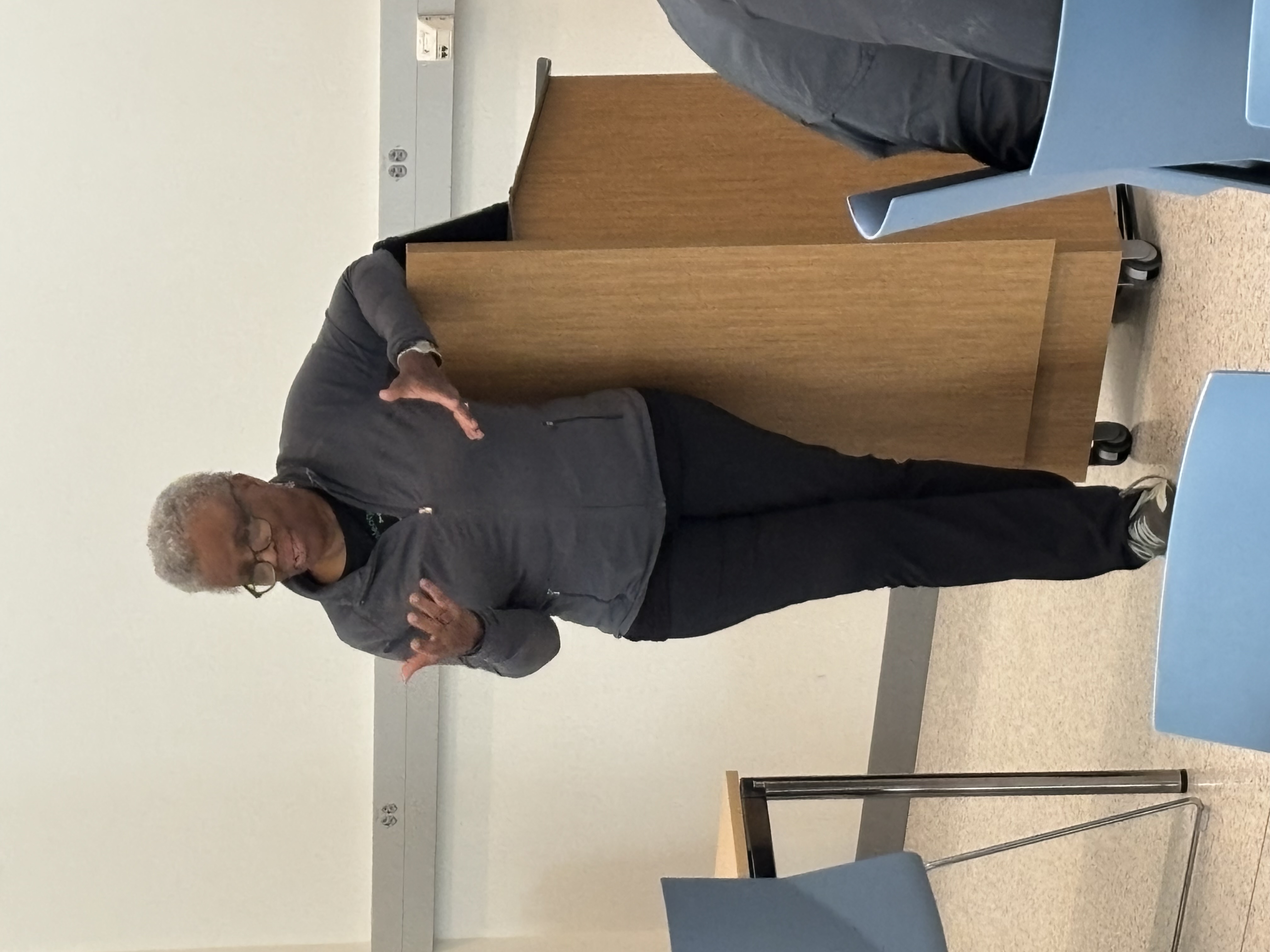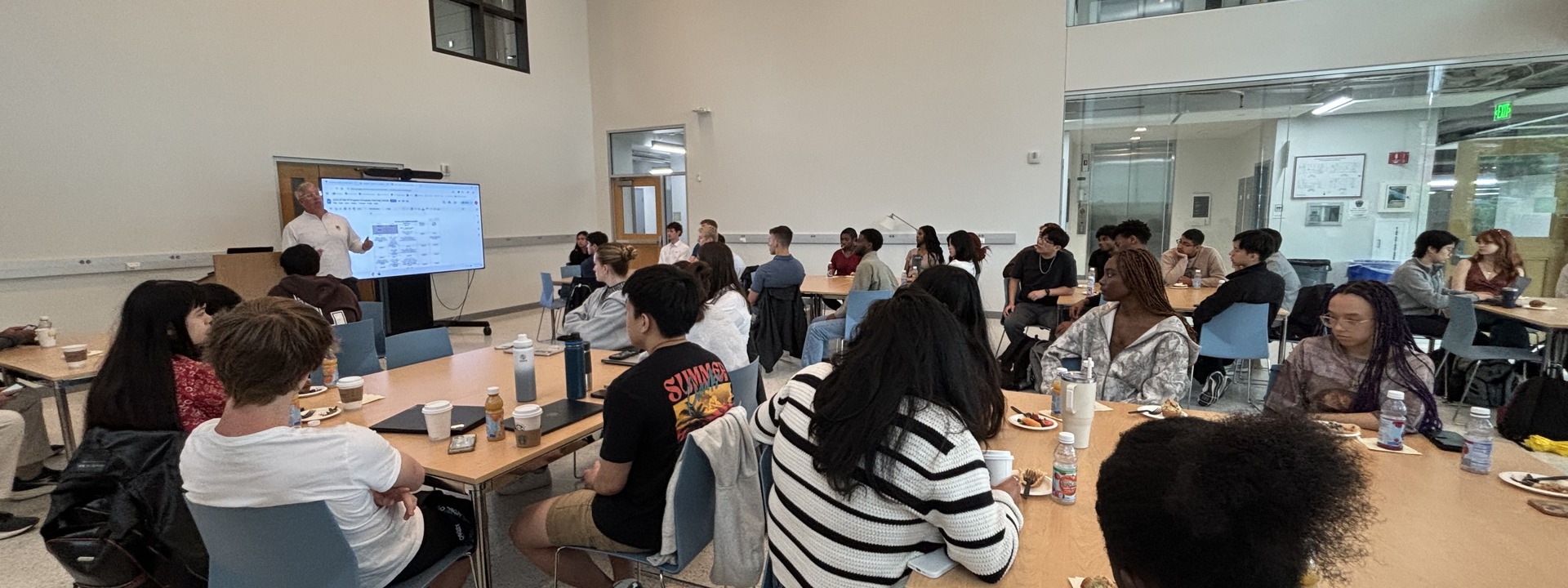At Lehigh University, you know summer has arrived when you see two things: confetti from graduation celebrations glittering on the sidewalks and STEM-SI students gathering for the summer research experience’s orientation. This year, both were out in full force just after Memorial Day.
On the morning of May 28, students and the STEM-SI leadership team gathered in HST to kick off the program’s fifth year. The 2025 cohort includes 38 STEM-SI students, with 29 more involved in other undergraduate research groups, such as individual faculty labs, Natural Hazards Engineering Research Infrastructure (NHERI), National Science Foundation Research Translation AcceLUrator (RTA) fellows, and others, joining in activities. While many students in the program are Lehigh students, other Pennsylvania schools such as Muhlenberg College, Penn State, Franklin & Marshall, University of Pittsburgh, and Temple University are represented, as well as students who come from farther away, such as Case Western Reserve and the University of Alabama.
Chad Kusko, Institute for Cyber Physical Infrastructure and Energy (I-CPIE) Director of Operations, opened the session, welcoming the group and explaining program logistics, while also urging the students to take advantage of the optional programming, from weekly faculty seminars to a pair of Career Services-led professional development sessions. New this year are research translation seminars and a session on data visualization. Kusko also offered some advice, telling students to focus on their own research and growth, saying “each of you will have a completely different experience than the person sitting next to you.”
Kusko was followed by Neal Simon, Professor of Biological Sciences, one of the program’s founders (along with Vassie Ware, Professor of Biological Sciences; Richard Sause, John T. Stuart Professor of Structural Engineering and I-CPIE founding director and Shalinee Kishore, Iacocca Chair Professor Electrical and Computer Engineering and current I-CPIE director). Simon, a neuroscientist, stressed the importance of communication as part of research–not only with peers, but also with researchers working outside of a student’s home discipline–calling it an “invaluable skill.” Simon also focused on ethical research, presenting some case studies pertaining to issues such as organ donation, drug pricing, and in startup companies. He also told students that, in 10 years, what they will remember most vividly about this summer is the research process: its frustrations, accomplishments, and the learning process.
Simon’s startups example was particularly appropriate for students interested in entrepreneurship. A contingent of 12 fellows are working with the Research Translation AcceLUrater, a National Science Foundation (NSF)-supported program that aims to change the culture of research from a publishing emphasis to one of developing the economic potential and social impact of that research, creating a bridge from the academic world to industry. The lead researcher on this initiative at Lehigh University, John Coulter, Senior Associate Dean for Research, spoke about the program, encouraging all of the students in the room to think of themselves as entrepreneurs and find ways to create their own opportunities to use their research to make an impact on the world.

Vassie Ware, Professor of Biological Sciences (above), spoke on responsible conduct of research. While the students assembled might be heading to very different labs, from biology to structural testing, all researchers, Ware said, need to operate with “great integrity” in their work. She pointed to the program’s faculty mentors as models to emulate, stressed the importance of good record keeping during the research process, as well as documentation. She also stressed that students should take the initiative on learning what the mentors’ expectations for them are over the summer, telling them that “you want a sense of how you fit into the project” and that working up to those expectations will lead to a successful research and learning experience.
The morning ended as students grabbed to-go lunches and met with their faculty mentors to get started on their research. The 10-week program will culminate with the annual Research Day Expo on July 31, with poster presentations–and very likely more confetti in celebration of the summer’s achievements.

